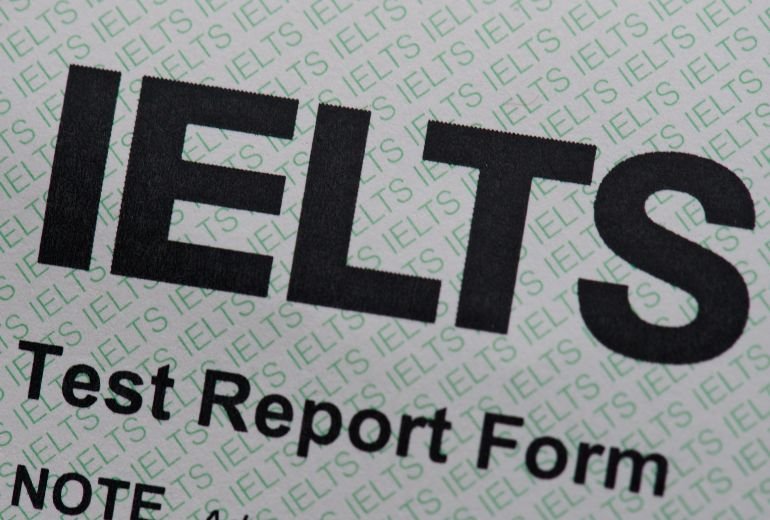The IELTS speaking test is an important component of the IELTS exam, assessing your ability to communicate effectively in English. It can be a challenging experience, especially for non-native speakers, as it requires not only language proficiency but also confidence and critical thinking skills. However, with the right preparation and practice, you can excel in the IELTS speaking test and achieve your desired score.
In this blog post, we will provide an overview of common IELTS speaking topics and sample questions to help you prepare for the test. We will also share tips for effective speaking practice and provide additional resources for your preparation. Whether you’re taking the IELTS for academic or immigration purposes, this guide will equip you with the knowledge and skills you need to succeed in the speaking component of the test. Let’s get started!
IELTS Speaking Topics
The IELTS speaking test assesses your ability to communicate effectively in English, using appropriate vocabulary, grammar, pronunciation, and fluency. To do well in the test, it’s important to be familiar with common IELTS speaking topics and practice answering questions related to those topics.
A. Common IELTS Speaking Topics
The topics covered in the IELTS speaking test are designed to reflect everyday situations and experiences. Some common IELTS speaking topics include:
1. Education
Questions related to education can cover a wide range of topics, such as:
What subjects did you study in school?
Did you enjoy your time at school?
Do you think education is important?
2. Family
Family-related questions may include:
Tell me about your family.
Do you have any siblings?
What activities do you like to do with your family?
3. Hobbies
Questions related to hobbies could include:
What do you like to do in your free time?
How long have you been interested in your hobby?
Do you think it’s important to have a hobby?
4. Travel
Travel-related questions may include:
Have you traveled abroad before?
What’s your favorite place that you’ve visited?
Do you think it’s important to travel?
5. Work
Work-related questions could include:
What’s your current job?
Do you enjoy your job?
What skills are important for your job?
These are just a few examples of the many topics that could be covered in the IELTS speaking test. By practicing answering questions related to these topics, you can become more comfortable and confident in speaking about a range of everyday experiences and situations. In the next section, we’ll provide sample questions for each topic to help you get started.
Tips for IELTS Speaking Practice
To do well in the IELTS speaking test, it’s not enough to just know the topics and have good language skills. You also need to practice speaking in English regularly to build your confidence and fluency. Here are some tips to help you practice effectively:
A. Finding a Speaking Partner
One of the best ways to practice speaking is to find a partner to practice with. This could be a friend, family member, or language exchange partner. Look for someone who is also interested in practicing English and make a regular schedule to practice together. You could also join a language exchange group or find a tutor online.
B. Setting a Regular Practice Schedule
Consistency is key when it comes to speaking practice. Set aside a specific time each day or week to practice speaking in English. Even if you only have 10 or 15 minutes, regular practice will help you build your skills over time.
C. Recording and Analyzing Practice Sessions
Recording yourself while practicing speaking can be a valuable tool for self-assessment. Listen back to your recordings and identify areas where you could improve, such as pronunciation or grammar. You could also ask a speaking partner or tutor for feedback on your recordings.
D. Using Online Resources for Practice
There are many online resources available to help you practice speaking, such as language exchange websites, online language courses, and YouTube videos. Look for resources that focus specifically on IELTS speaking practice, as these will provide you with the targeted practice for the test.
Record and listen to yourself: One of the best ways to improve your speaking skills is to record yourself practicing and then listen to it. This will help you identify areas where you need to improve, such as pronunciation, grammar, and vocabulary.
Speak in front of a mirror: Practicing in front of a mirror can help you become more aware of your body language, facial expressions, and overall presentation. This can help you feel more confident and natural when speaking to an examiner.
Practice with a partner: Practicing with a partner is a great way to simulate the actual IELTS speaking test. You can take turns asking and answering questions, and provide feedback and guidance to each other.
Use IELTS practice materials: There are many online resources and practice materials available for the IELTS speaking test. Use these materials to get familiar with the test format and types of questions that you might encounter on the actual test.
Learn new vocabulary: Building your vocabulary is essential for the IELTS speaking test. Learn new words and phrases related to common topics, and practice using them in context.
Think before you speak: Take a few seconds to think about your response before speaking. This will help you organize your thoughts and avoid speaking too quickly or hesitating too much.
By following these tips, you can improve your speaking skills and feel more confident when taking the IELTS speaking test. Remember that practice is key, so make sure to practice regularly and seek feedback from a tutor or speaking partner.
By following these tips and practicing regularly, you can improve your speaking skills and feel more confident when taking the IELTS speaking test. In the next section, we’ll provide sample questions for each part of the test to help you practice.
Sample IELTS Speaking Questions
Now that you’re familiar with some common IELTS speaking topics and tips for practice, let’s take a look at some sample questions to help you prepare for the test.
A. Part 1 Questions
Part 1 of the IELTS speaking test consists of general questions about yourself, your interests, and your experiences. Here are some sample questions:
What is your full name?
Can I see your ID?
Where are you from?
What do you like to do in your free time?
Have you traveled abroad before?
What kind of music do you like?
These questions are designed to help the examiner get to know you and your communication skills. Try to answer them in complete sentences and provide details to help the examiner understand your responses.
B. Part 2 Questions
In part 2 of the IELTS speaking test, you will be given a task card with a topic and will have one minute to prepare before speaking for up to two minutes on the topic. Here are some sample task cards:
1. Describe a memorable event from your childhood.
What was the event?
Where did it happen?
Who was there with you?
Why was it memorable?
2. Talk about a book you’ve read that you found interesting.
What was the book about?
Why did you find it interesting?
Who would you recommend the book to?
3. Describe a city or town you have visited that you liked.
Where is the city or town located?
What did you like about it?
What were some memorable experiences you had there?
Remember to use the one-minute preparation time to plan your response and organize your thoughts. Try to speak clearly and confidently during your two-minute speaking time.
C. Part 3 Questions
Part 3 of the IELTS speaking test consists of follow-up questions related to the topic you spoke about in part 2. Here are some sample part 3 questions related to the part 2 topics above:
1. Follow-up questions related to the memorable childhood event:
Do you think that childhood events can have an impact on a person’s adult life?
How do events from childhood compare to events from later in life?
What kind of events do you think children today will remember from their childhood?
2. Follow-up questions related to the interesting book:
How do you think books can benefit people?
What kind of books are popular in your country?
Do you think that electronic books will eventually replace printed books?
3. Follow-up questions related to the city or town visited:
How do cities and towns differ in terms of culture and lifestyle?
Do you think it’s important for people to travel and visit new places?
How has tourism impacted the city or town you visited?
These questions are designed to explore your ability to express your ideas and opinions, as well as your ability to think critically about the topic at hand. Try to provide thoughtful and well-organized responses to these questions.
By practicing with these sample questions and following the tips for speaking practice, you can improve your speaking skills and feel more confident when taking the IELTS speaking test. Remember to focus on fluency, accuracy, and coherence in your responses, and don’t be afraid to ask for feedback and guidance from a speaking partner or tutor. Good luck!
The IELTS Speaking test is a face-to-face interview between the test taker and an examiner. The test is designed to assess the test taker’s ability to communicate effectively in English. The Speaking test is conducted in three parts and takes approximately 11-14 minutes to complete.
Here’s what happens in each part of the IELTS Speaking test:
Part 1 (Introduction and Interview)
In Part 1, the examiner introduces themselves and asks the test taker some general questions about themselves, their family, their work or studies, their hobbies and interests, and other personal topics. The questions in Part 1 are designed to be easy and familiar to the test taker and are intended to help them feel more comfortable and relaxed.
Part 2 (Individual Long Turn)
In Part 2, the test taker is given a topic card with a specific topic to talk about. The test taker is given one minute to prepare their response and may take notes if they wish. They must then speak for up to two minutes on the topic, with the examiner listening and taking notes. The topic in Part 2 is usually more challenging and requires the test taker to use more complex language and ideas.
Part 3 (Discussion)
In Part 3, the examiner and the test taker engage in a more in-depth discussion related to the topic in Part 2. The questions in Part 3 are designed to be more abstract and thought-provoking and may require the test taker to express opinions, give reasons and examples, or speculate on hypothetical situations. The goal of Part 3 is to assess the test taker’s ability to engage in a fluent and coherent discussion on a more complex topic.
Overall, the IELTS Speaking test is designed to assess the test taker’s ability to communicate effectively in English in a range of different contexts. The test taker is assessed on their fluency and coherence, grammatical range and accuracy, vocabulary usage, and pronunciation.
Conclusion
The IELTS speaking test can be a challenging experience, but with the right preparation and practice, you can improve your speaking skills and achieve a high score. In this blog post, we’ve covered some common IELTS speaking topics, tips for speaking practice, and sample questions for each part of the test.
Remember that the key to success in the IELTS speaking test is to be confident, clear, and organized in your responses. Practice regularly with a speaking partner or tutor, and take advantage of online resources to help you prepare for the test.
We hope this blog post has been helpful in your IELTS speaking preparation. If you have any questions or would like additional guidance, don’t hesitate to reach out to a language tutor or IELTS preparation course. Good luck with your IELTS speaking test!





Post a Comment